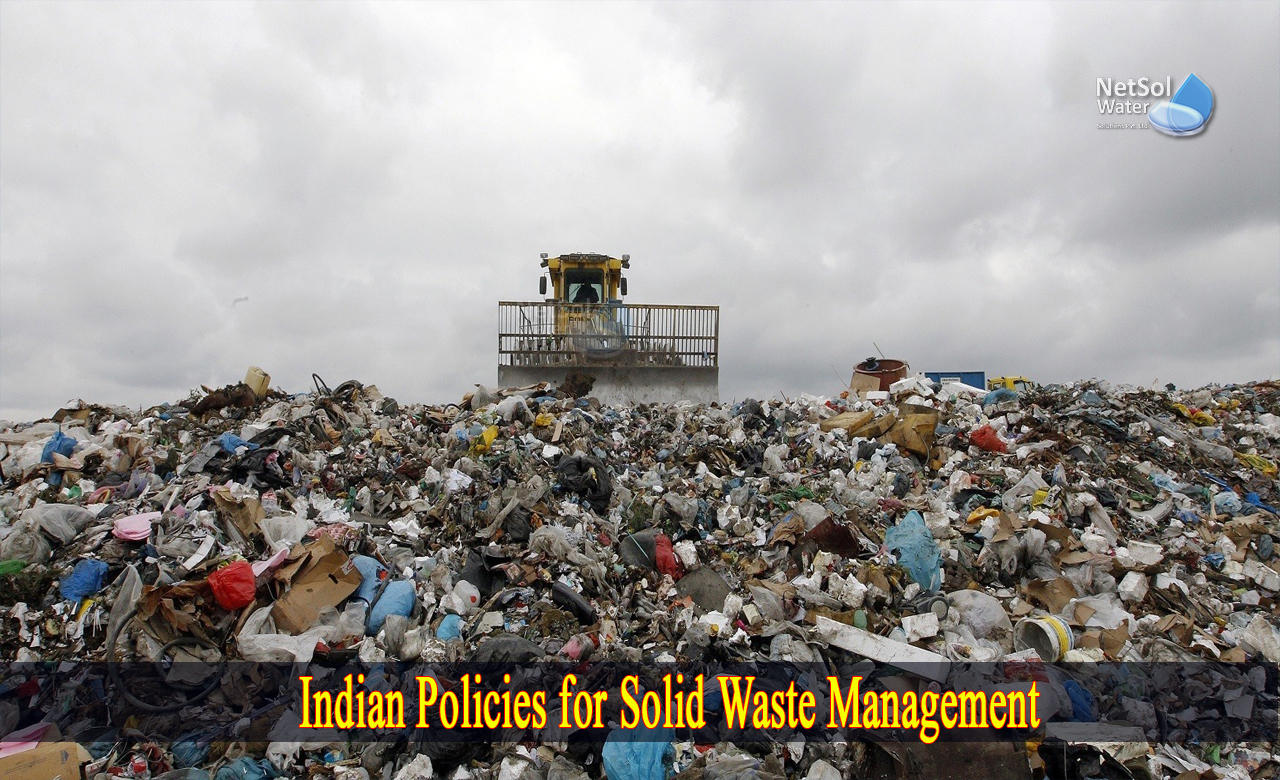What is the Indian Policies for Solid Waste Management?
With the country's ever-increasing population and urbanization, waste management has arisen as a major concern in India. Not only has the quantity of waste risen, but the characteristics of waste have also changed dramatically over time, with the introduction of so many new devices and technology. It is estimated that the country generates around 72 million tonnes of waste per year; of which 5.6 million is plastic waste and 0.17 million is biomedical waste. Furthermore, hazardous waste creation is 7.90 million TPA, with e-waste accounting for 15 lakh tonnes. In Indian cities, per capita waste output, ranges from 200 to 600 grams each day (2011).
Indian Policies for Solid Waste Management
The Indian Government has implemented a new act, the Municipal Solid Waste (Management and Handling) Rules (2000),is replaced by the Solid Waste Management Rules (SWM), 2016.
In order to reduce the huge volumes of mixed organic waste and extra inorganic waste, the Government of India issued the following guidelines for implementation under the Solid Waste Management Rules (SWM), 2016.
1: Segregation and waste management are collectively the responsibility of institutions, market organizations, event organizers and hotels and restaurants. In the case of any gathering of more than 100 individuals, the organizers must provide waste separation at the point of consumption. The waste must also be turned up to the collectors as specified by the neighbouring authorities.
2:The collection and disposal of sanitary waste is the first action under this regulatory requirement. The emphasis is on raising knowledge about the right disposal techniques for sanitary waste. It is now the obligation of the maker or manufacturer to raise awareness. They are also advised by legislation to give public convenience in the disposal. They must give a sanitary product disposal pouch or wrapper.
3: Another project under this regulation is the packaging waste collection plan. Manufacturers or brands whose products are offered in non-biodegradable packaging must implement a collection and disposal scheme. The burden is passed to them since manufacturers are better suited to obtain, process, and dispose of their solid waste.
4: Another initiative under this mandate is the collecting of user fees for Swachh Bharat Abhiyan. Local waste collection agencies in India have the authority to set a certain cost for the usage of their services. "The municipal authorities will assess user fees from bulk generators for collection, disposal and processing." If the municipal authorities decide, dual fines are imposed. A user fee will be charged for waste collection, as well as a "spot fine" for littered waste that is not separated. Rag pickers, waste pickers, and local kabadiwalas are also transitioning from informal to formal waste collection. This places them under the control of the MCD in each locality. The guidelines include a zero-tolerance approach for any type of littering, including throwing, burning, or burying solid waste. Littering in the streets, open public places drains or water bodies are forbidden.
5: Waste processing and treatment is another effort under this mandate. The biodegradable waste must be processed, treated and disposed of inside the premises. There may be a composite residue that must be disposed of by waste collectors or as ordered by the local government.
6: Another initiative promotes waste conversion to electricity for smart cities. This must be completed with six months' notice. Until now, infrastructure support had been inadequate. The Ministry of New and Renewable Energy Sources must assist in the development of infrastructure to support Waste-to-Energy facilities.
7: The creation of a central monitoring committee is the move under this mission. The government has formed such a committee to oversee the implementation of legislation. Every year, the committee of stakeholders will convene to monitor the implementation of the legislation.
Conclusion
Rules are only as good on paper. These must be disseminated through extensive awareness efforts as we at Netsol Water are trying to do. The general public's participation is what will enable the easy creation of organic waste management regimes in clean India.



